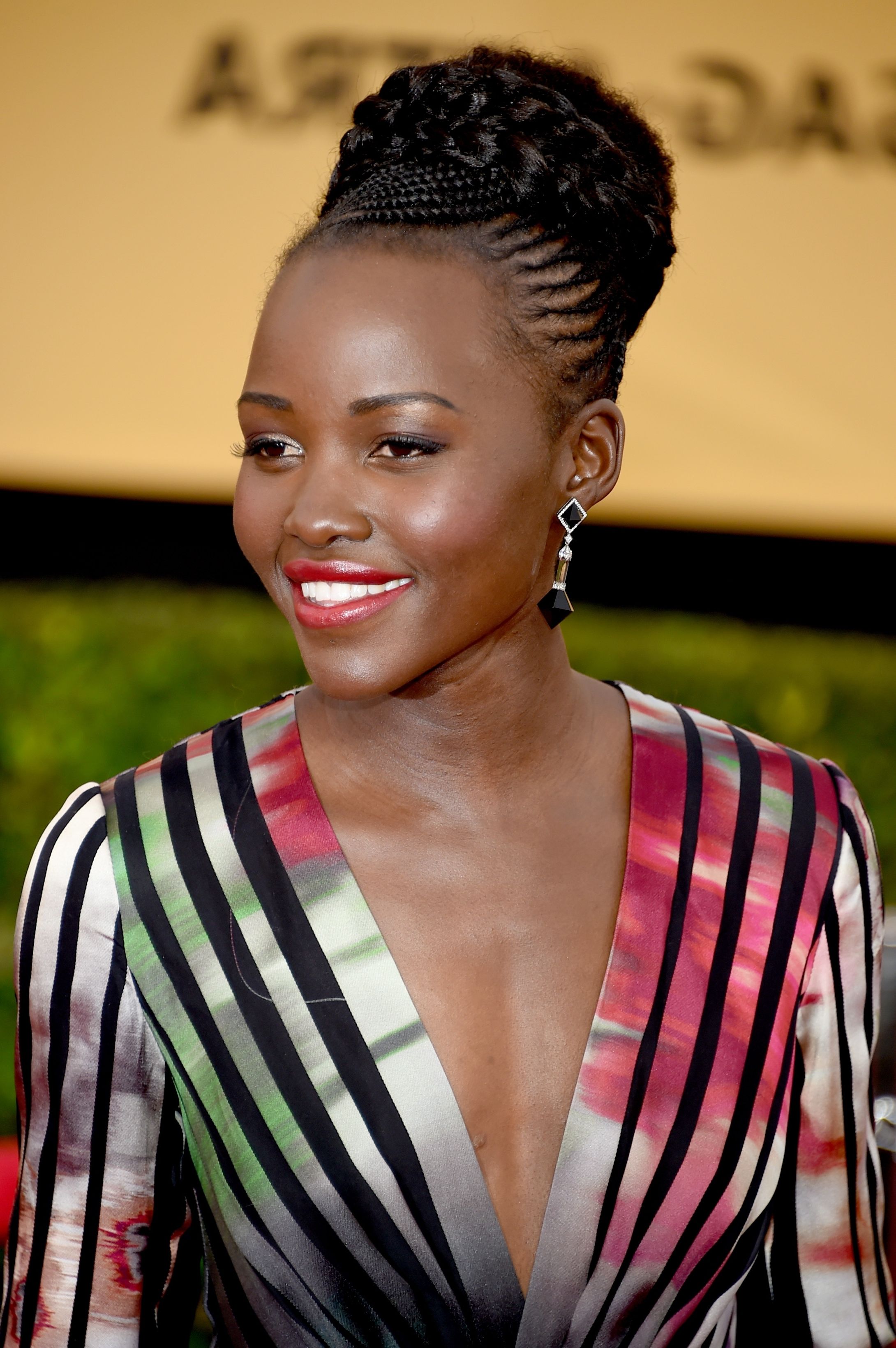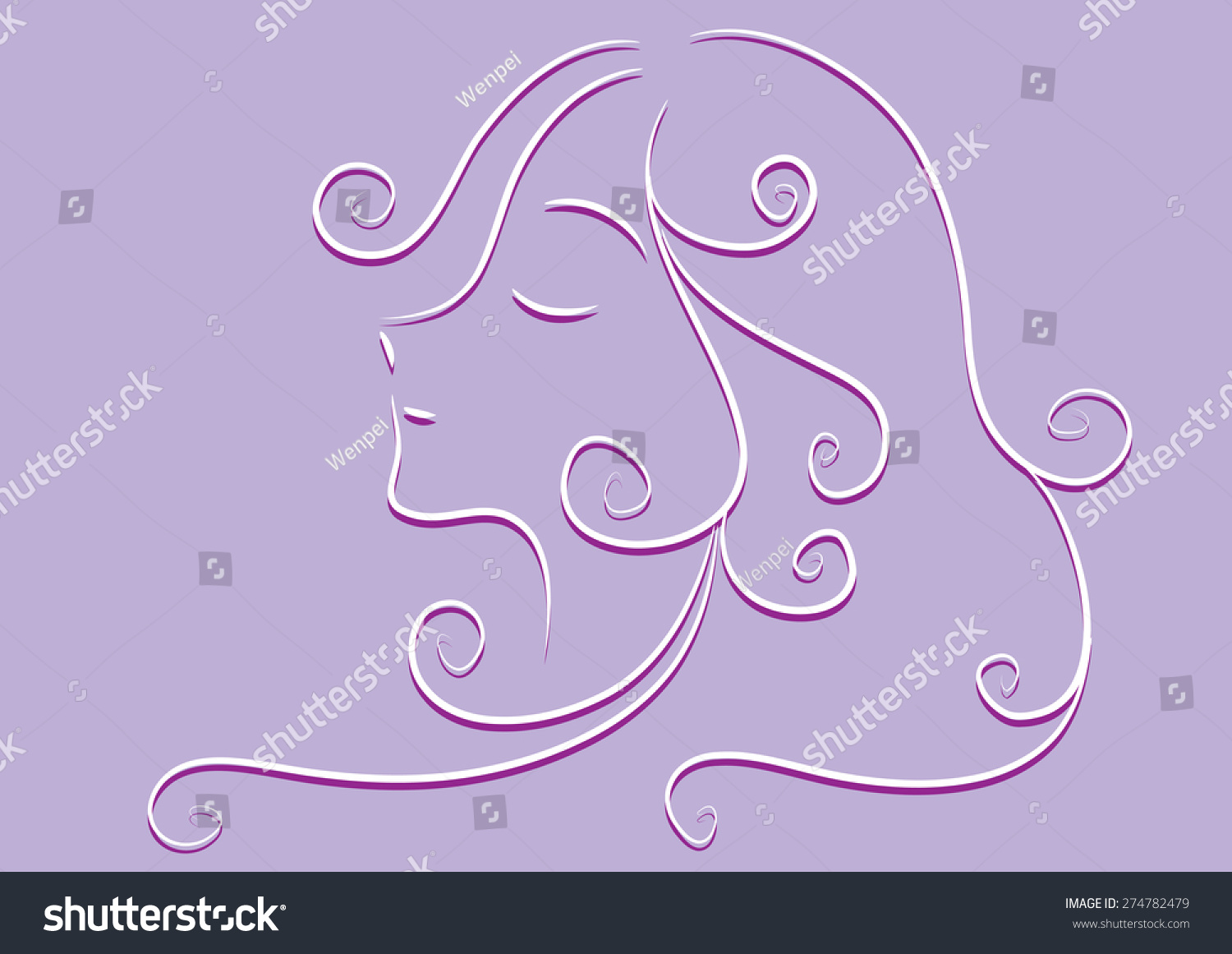In the world of hairstyling, "lines in hair" have made a significant mark. Originating as a bold fashion statement, these lines have evolved into an artistic expression beloved by many. With their ability to transform ordinary hairstyles into extraordinary works of art, lines in hair have become a staple for both casual and formal looks. From intricate designs to simple geometric shapes, the versatility of lines in hair allows individuals to express their unique style with creativity and flair.
As more people embrace the trend of lines in hair, it's important to understand their significance and the best ways to incorporate them into your hairstyle. Whether you're aiming for a subtle touch or a dramatic effect, lines in hair provide endless possibilities for customization. Understanding the techniques and tools involved in creating these designs can help you achieve the desired look while maintaining the health and integrity of your hair.
Furthermore, lines in hair have transcended cultural boundaries and have become a universal trend embraced by people of all ages. With their ability to complement various hair types and lengths, they offer a unique way to showcase one's individuality. As fashion continues to evolve, lines in hair remain a timeless and captivating choice for those seeking to make a statement and enhance their overall appearance.
Read also:David Yosts Personal Life Insights Into His Relationships
Table of Contents
- History of Lines in Hair
- Why Are Lines in Hair Popular?
- How to Create Lines in Hair?
- Tools and Techniques
- Different Styles of Lines in Hair
- Lines in Hair for Different Hair Types
- Celebrity Inspiration
- Maintenance and Care
- Potential Risks
- Cultural Significance
- Lines in Hair for Formal Occasions
- DIY vs Professional
- Cost Considerations
- Frequently Asked Questions
- Conclusion
History of Lines in Hair
The history of lines in hair is as dynamic as the styles themselves. This trend has roots in various cultures and has been embraced as a form of personal expression and identity. Historically, lines in hair were often seen in African tribal cultures, where they were used to signify social status, age, marital status, and even tribal affiliation. As time passed, these intricate designs found their way into mainstream fashion, evolving into the styles we see today.
During the hip-hop era of the 1980s and 1990s, lines in hair became a symbol of rebellion and individuality. Artists and athletes embraced the trend, turning it into a cultural phenomenon. Over the years, the styles of lines in hair have continued to evolve, influenced by changing fashion trends and technological advancements in hairstyling tools.
Why Are Lines in Hair Popular?
Lines in hair have gained popularity for several reasons. First and foremost, they offer a unique way for individuals to express their creativity and personal style. The ability to customize the design to suit one's taste makes it an appealing choice for many.
Moreover, lines in hair can add a contemporary twist to traditional hairstyles, making them more visually interesting. Whether it's a simple line or an intricate pattern, these designs can enhance the overall appearance and make a statement.
Another factor contributing to their popularity is the influence of celebrities and social media. Many public figures have been spotted sporting lines in hair, inspiring their fans to try out the trend for themselves. Social media platforms like Instagram and Pinterest provide a plethora of inspiration and tutorials, further fueling the trend's popularity.
How to Create Lines in Hair?
Creating lines in hair requires precision and skill. The process typically involves sectioning the hair and using a fine-toothed comb or a razor to etch the desired design. It's important to have a clear vision of the design before starting and to work slowly to ensure accuracy.
Read also:Inspiring Achievements Of Raemiah Julianna A Role Model For All
For beginners, it may be helpful to start with simple lines or geometric shapes before attempting more complex designs. Practice makes perfect, and with time and patience, anyone can master the art of creating lines in hair.
Tools and Techniques
To achieve the best results, it's important to use the right tools and techniques. Common tools used for creating lines in hair include clippers, razors, and fine-toothed combs. Each tool offers a different level of precision and can be used to achieve various effects.
When it comes to techniques, steady hands and a keen eye for detail are essential. It's important to maintain a consistent pressure and angle while creating the lines to ensure clean and sharp results. For more intricate designs, stencils can be used as a guide to help achieve the desired pattern.
Different Styles of Lines in Hair
There are countless styles of lines in hair to choose from, ranging from simple and understated to bold and elaborate. Some popular styles include:
- Single Line: A classic choice that adds a subtle yet stylish touch to any hairstyle.
- Double Line: Two parallel lines that create a more defined and structured look.
- Zigzag Pattern: A playful design that adds movement and texture to the hair.
- Geometric Shapes: Incorporating shapes like triangles, diamonds, or squares for a modern and edgy look.
- Tribal Patterns: Inspired by traditional designs, these patterns add a unique and cultural element to the hairstyle.
Lines in Hair for Different Hair Types
Lines in hair can be adapted to suit various hair types, including straight, curly, wavy, and coily textures. For straight hair, lines can be easily etched for a clean and precise look. Curly and coily hair types can also benefit from lines in hair, as the designs can add definition and structure to the curls.
It's important to consider the natural texture and density of the hair when choosing a design. Thicker hair may require more pronounced lines, while finer hair can achieve a more delicate look with subtle designs.
Celebrity Inspiration
Many celebrities have embraced the trend of lines in hair, inspiring their fans to follow suit. Artists like Drake, Travis Scott, and Zayn Malik have been spotted with intricate designs, showcasing the versatility and appeal of this trend.
These public figures often use lines in hair as a way to enhance their overall image and make a bold statement. By incorporating unique designs that complement their personal style, they set trends that resonate with fans worldwide.
Maintenance and Care
Maintaining lines in hair requires regular upkeep to ensure the designs remain sharp and defined. It's recommended to schedule touch-up appointments every few weeks to keep the lines looking fresh.
Proper hair care is also essential to prevent damage and maintain the health of the hair. Using gentle hair products and avoiding excessive heat styling can help preserve the integrity of the hair and prolong the life of the design.
Potential Risks
While lines in hair are a popular and stylish choice, it's important to be aware of potential risks. Using sharp tools like razors and clippers requires precision and skill to avoid accidental cuts or injuries.
Additionally, over-processing the hair or using harsh products can lead to damage and breakage. It's important to follow proper hair care practices and consult with a professional stylist if unsure about the techniques involved.
Cultural Significance
Lines in hair hold cultural significance for many communities, particularly those of African descent. These designs are often used as a form of expression, storytelling, and cultural identity.
Understanding the cultural significance of lines in hair can deepen one's appreciation for the trend and foster respect for its origins. It's important to approach the trend with cultural sensitivity and awareness.
Lines in Hair for Formal Occasions
Lines in hair can be adapted for formal occasions, adding a touch of sophistication and elegance to any look. Opting for subtle and refined designs can complement formal attire and make a stylish statement.
Consulting with a professional stylist can help determine the best design for a formal event, ensuring the lines in hair enhance the overall appearance while maintaining a polished and sophisticated look.
DIY vs Professional
While it's possible to create lines in hair at home, seeking the expertise of a professional stylist can ensure the best results. Professionals have the necessary skills and tools to achieve clean and precise designs.
For those who prefer a DIY approach, it's important to practice on a small section of hair first and follow tutorials and guides to achieve the desired look. Patience and practice are key to mastering the art of lines in hair.
Cost Considerations
The cost of lines in hair can vary depending on the complexity of the design and the expertise of the stylist. Simple designs may cost less, while intricate patterns may require a higher investment.
It's important to budget for regular touch-up appointments and maintenance to ensure the lines in hair remain fresh and defined. Consulting with a stylist can provide a better understanding of the costs involved.
Frequently Asked Questions
What are lines in hair?
Lines in hair are intentional designs etched into the hair using tools like razors or clippers. They can range from simple lines to intricate patterns and serve as a form of artistic expression.
Can lines in hair damage the hair?
When done correctly, lines in hair should not damage the hair. However, improper techniques or tools can lead to breakage or damage. It's important to consult with a professional stylist to ensure the best results.
How long do lines in hair last?
The longevity of lines in hair depends on the hair's growth rate and the design's complexity. On average, lines in hair can last between 2 to 4 weeks before needing a touch-up.
Are lines in hair suitable for all hair types?
Yes, lines in hair can be adapted for different hair types, including straight, curly, wavy, and coily textures. The design can be customized to suit the hair's natural texture and density.
Can I create lines in hair at home?
While it's possible to create lines in hair at home, seeking the expertise of a professional stylist can ensure clean and precise results. For those attempting a DIY approach, practicing on a small section of hair first is recommended.
What tools are needed to create lines in hair?
Common tools used for creating lines in hair include clippers, razors, and fine-toothed combs. Each tool offers different levels of precision and can be used to achieve various effects.
Conclusion
Lines in hair are a versatile and stylish trend that allows individuals to express their creativity and personal style. With their rich history and cultural significance, they offer a unique way to enhance one's appearance and make a statement. Whether opting for a simple line or an intricate pattern, lines in hair provide endless possibilities for customization and personalization.
As the trend continues to evolve, it's important to approach it with respect and awareness of its cultural roots. By understanding the techniques and tools involved, individuals can achieve the desired look while maintaining the health and integrity of their hair. With their ability to complement various hair types and lengths, lines in hair remain a timeless and captivating choice for those seeking to transform their style and showcase their individuality.

